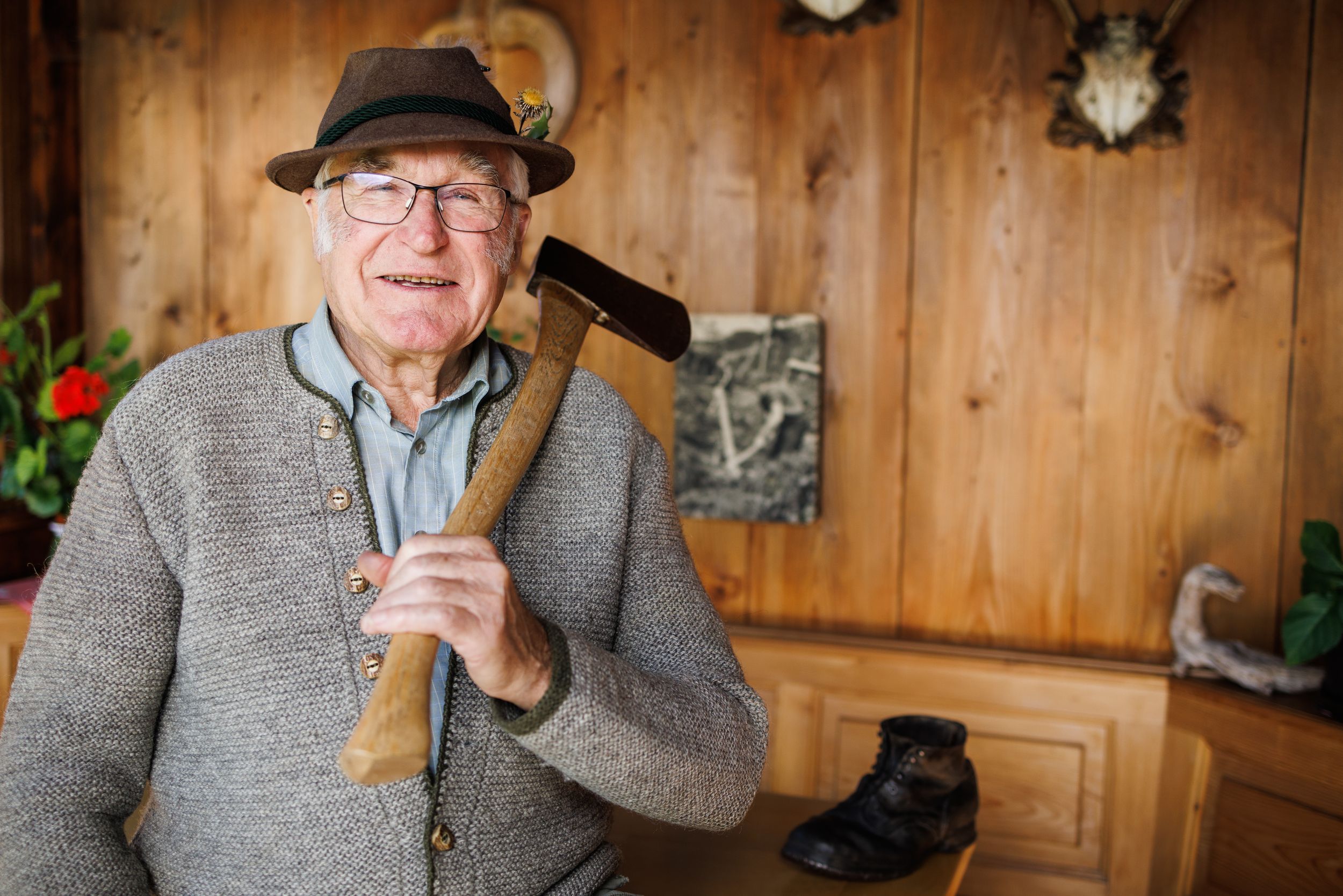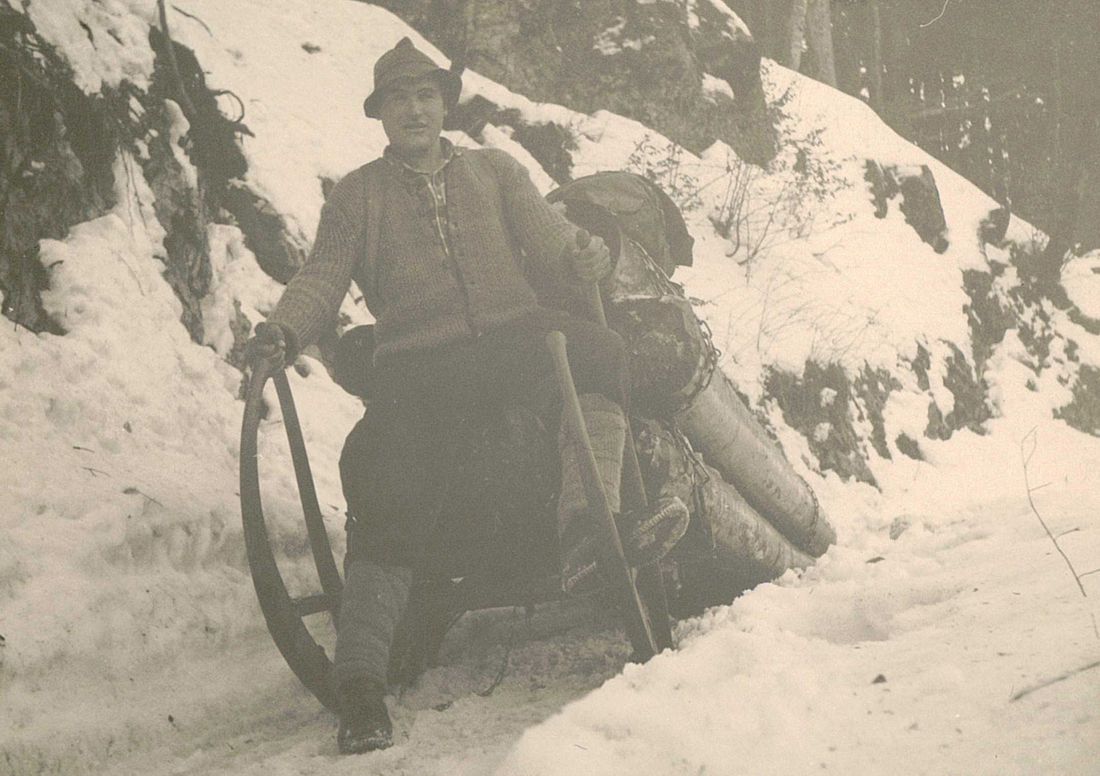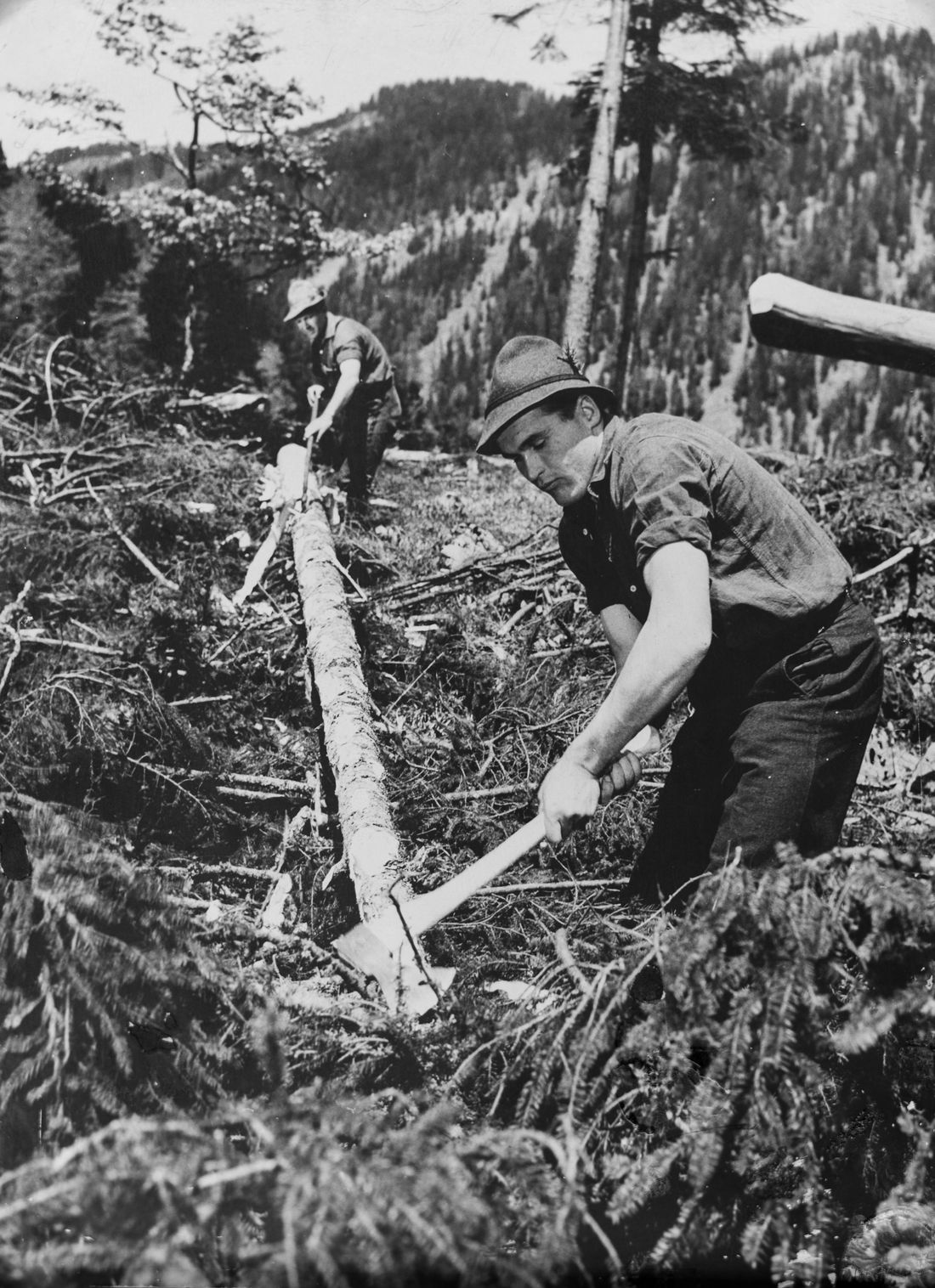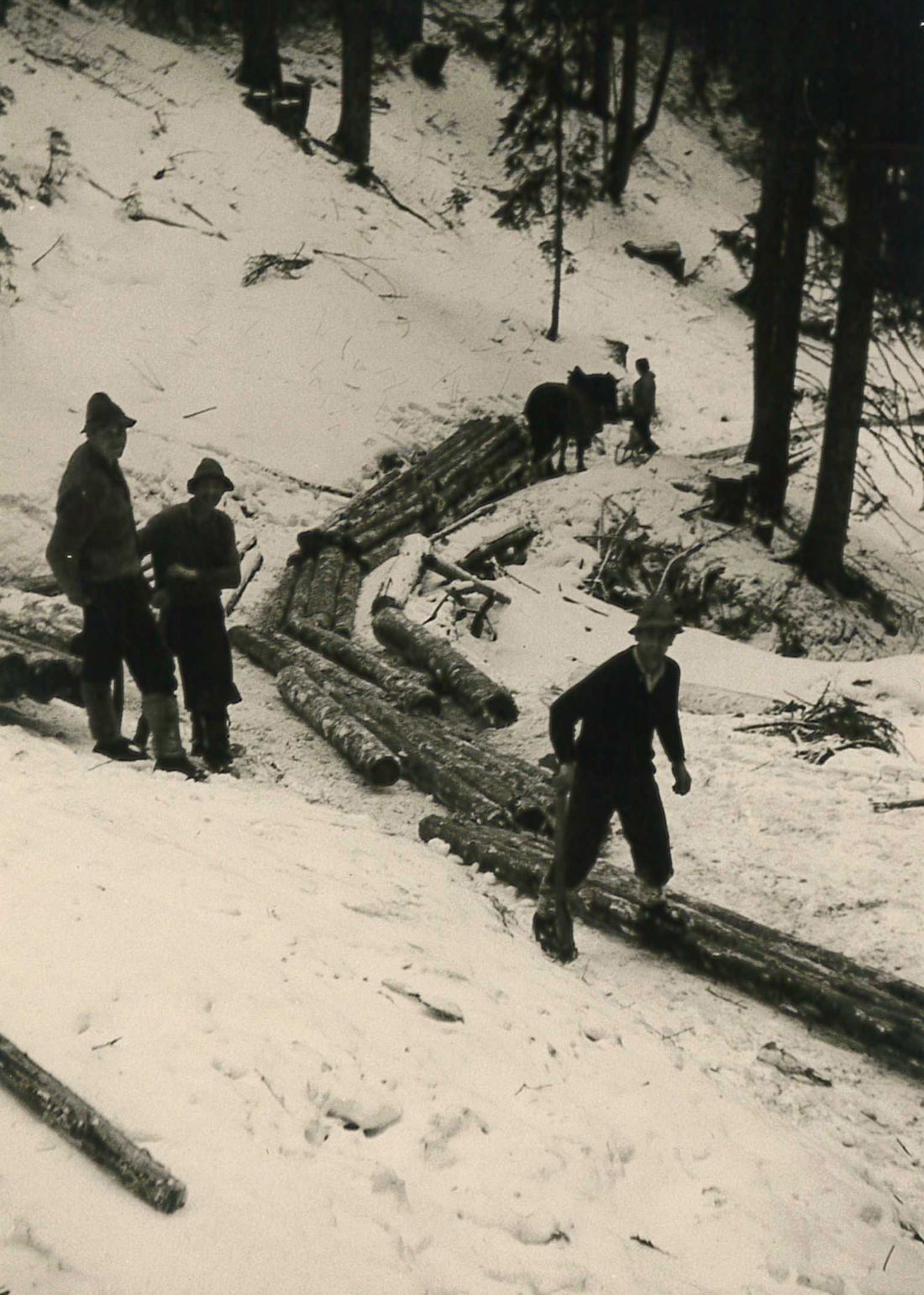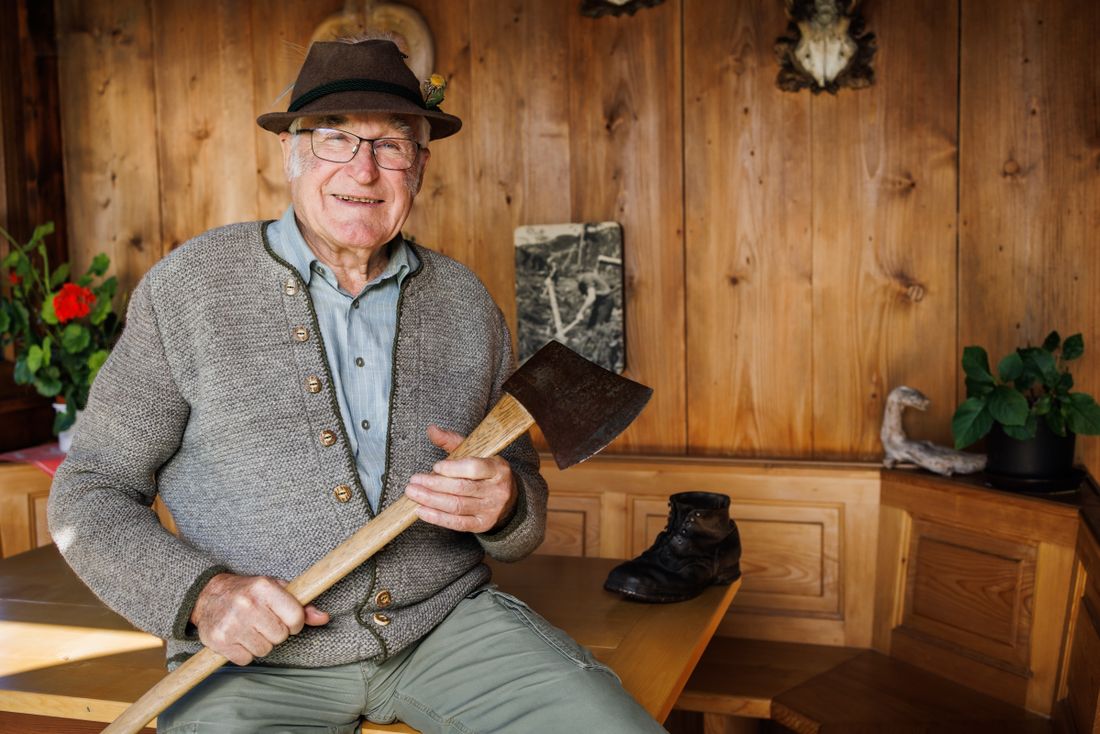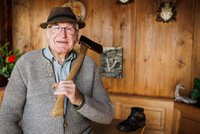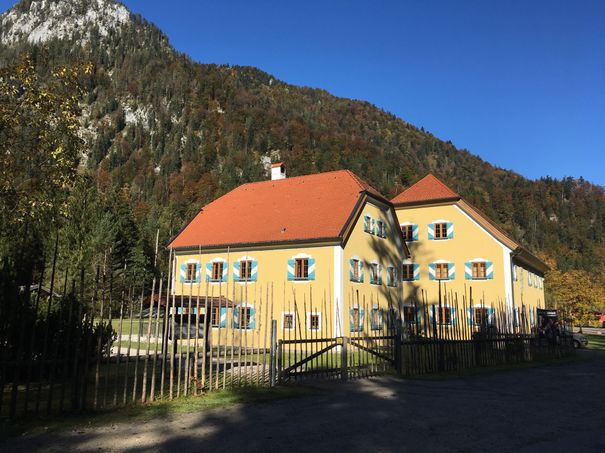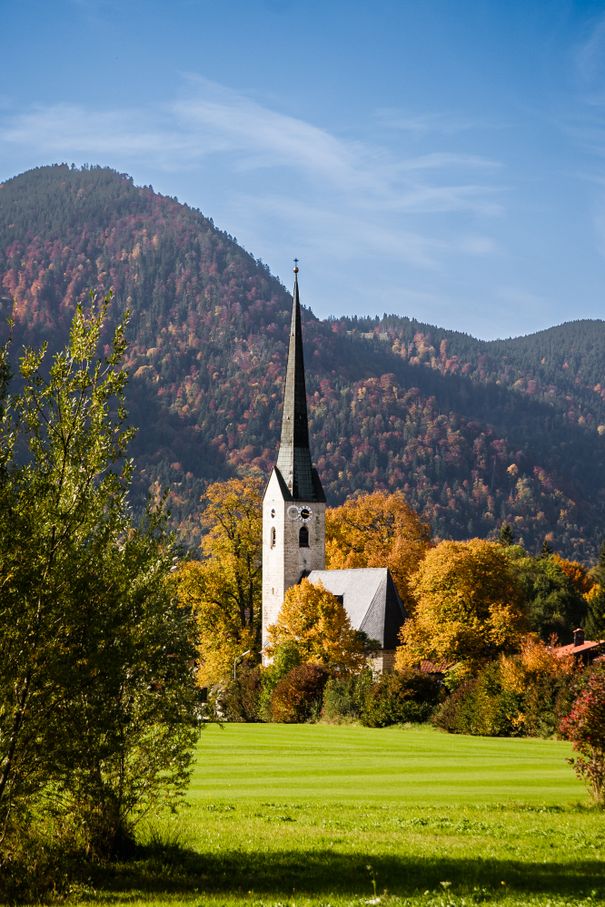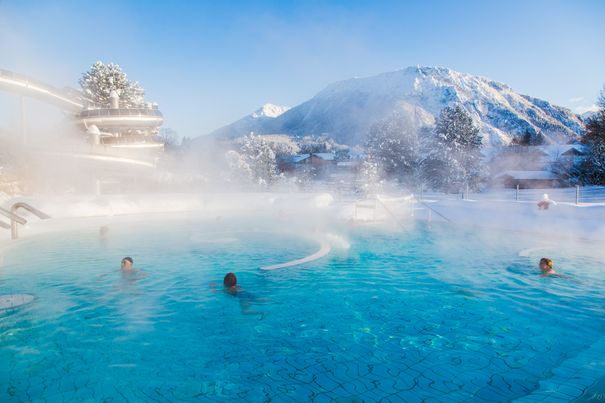Anton bought a chainsaw at the end of the 50s, when he started to work in a party of woodcutters. This made him one of the first. It was normal for the men to purchase their tools themselves. The chainsaw cost 1,200 mark, Anton still remembers this very precisely, and that it was a lot of money back then, despite the state subsidy. “But it made you much faster, so you could earn more”. This is because the men were paid at piece rates. Much earlier, there used to be timber masters who employed their own hands. From the start of the 20th century, the forestry offices themselves employed the woodcutters. The respective party foreman negotiated their pay in advance.
Although life as a woodcutter was hard, full of privation and dangerous, it was still also free and self-determined, away from the constraints of village life. “The nicest thing was the peaceful atmosphere in the morning. Or when we climbed quickly onto the Hörndl at midday, or slept for half an hour longer on the meadow. Nobody said anything about it, after all we still did our work,” says Anton Geierstanger.
He worked as a woodcutter for some years, he was even in the lumberjack world championship in Wisconsin in America, and was later a master at the woodsman school in the Laubau. Anton still loves to roam through the forest today. He says: “I had the best job in the world.”
